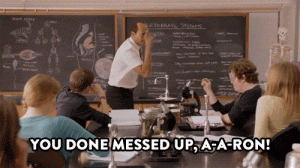Technological Advances may clash with the 4th Amendment, only time will tell.
First let’s take care of the nitty gritty; the vote breakdown was simple all justices sided with the majority opinion. Justice Scalia wrote the opinion of the Court while Justice Sotomayor and Justice Alito put their thoughts into concurring opinions, the latter concurring in judgement.
Now, we must breakdown the case facts. The police believed that Mr. Antoine Jones was involved in cocaine trafficking so they wire tapped his phone, with a warrant that they were granted, as well as surveilling the nightclub that Mr. Jones owned. The officers also received a warrant to install a GPS tracking device on his wife’s car that was used exclusively by Mr. Jones. However, here is where the problem lies. The warrant had stipulations on it that it must be installed within 10 days and in the District of Columbia, and neither of those stipulations were followed by the police. They installed it on the morning of the 11th day in Maryland.

The GPS was left on the car for 28 days while the police where able to record its whereabouts, however, there was no way to know who was driving the car. They became interested in a location in Fort Washington, Maryland that was a suspected drug stash house and when they heard of a cocaine shipment coming in for Mr. Jones through intercepted phone calls the police were granted warrants in order to search the car and the stash house. In both of these spots they found large sums of cash, cocaine, and weapons. After the initial trial Mr. Jones was indicted for conspiracy to distribute cocaine and the judge allowed the evidence collected by the GPS device on the car to be submitted as evidence. Mr. Jones was sentenced to life in prison. The Court of Appeals for the District of Columbia reversed the decision because they believed that the evidence was used from a warrantless GPS.

The question that the Supreme Court answered is, Does attaching a GPS device with a warrant, but not under the stipulations that go along with that warrant, a violation of the Fourth Amendment’s unreasonable search and seizures clause? Justice Scalia along with the 8 other Justices agreed that yes it does. The following section will tell you why!

The important takeaway from Justice Scalia’s opinion is that he asserts that the installation of and gathering of information from the GPS device is considered a “search”. This part is crucial because it then allows the Court to evaluate the case on the basis of the unreasonable search and seizures clause of the 4th Amendment. The justification that is used was the Mr. Jones’s car is private property and the government illegally invaded that private property by not following the stipulations of the warrant.
Justice Sotomayor wrote a concurring opinion where she agrees that it was an illegal search of the car since the GPS device was not placed under the ramifications of the warrant. However, she expands on the Court’s interpretation of the Fourth Amendment. She takes it one step further by saying that the Fourth Amendment extends to a government violation of a “subjective expectation of privacy that society recognizes as reasonable”. I bolded the important parts of that quote because they are very different from what the Court established. She is suggesting that society should make the decision on whether or not the invasion of privacy was reasonable or not. This is a very unique opinion and it sounds good in theory, in my opinion, but it is just not practical. It would be very difficult to decide 4th Amendment cases on this standard because there is just too much uncertainty and too many gray areas. However, the next 4th Amendment case to come could be very interesting if Sotomayor chooses to pursue this stance.
Unfortunately, I believe that our society is becoming reliant on devices. Whether it is our IPhones or our laptops, I think that somewhere our definition of privacy has actually changed. In today’s world I could Google someone or even pull him or her up on Facebook and learn much about him or her whether it is accurate information or not does not matter. While I was reading this case I was actually thinking about a recent CNN article I read about Amazon’s Alexa. Amazon’s Alexa is meant to sit in the home and answer to its’ owners commands. Therefore, the Alexa is always listening, inside the home. Most recently, an Alexa device recorded a conversation between a murderer and their victim prior to the crime being committed. Now, the lower courts are trying to decide if the evidence that the Alexa has gathered is allowed to be used in court. This is crazy to me because the Alexa is meant to be an entertainment device and if the government is allowed to use its’ memory or recording capabilities the 4th Amendment will certainly need a new interpretation. I have attached the article that also includes a video of the case that is currently dealing with the Amazon Alexa. It seems like to me that our own progress may start to hinder our abilities of maintaining privacy.
http://www.cnn.com/2017/03/07/tech/amazon-echo-alexa-bentonville-arkansas-murder-case/